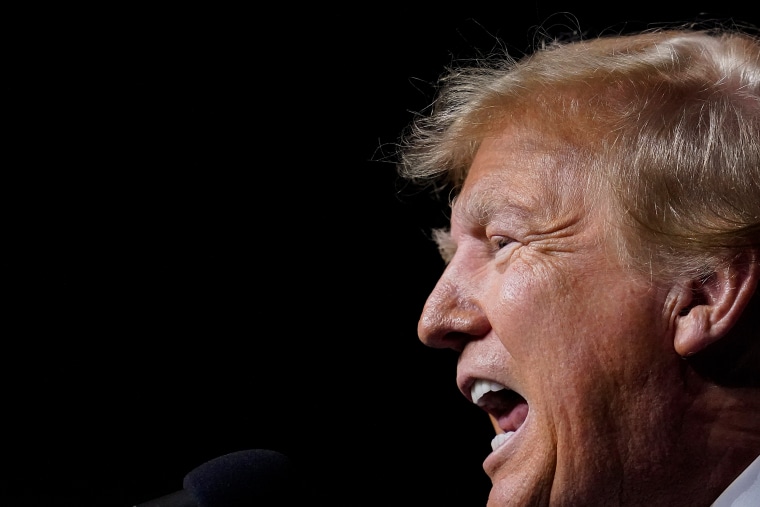Up until very recently, the underlying dynamic was largely unthinkable in American politics. A major political party simply wouldn’t consider for the presidency someone whose rhetoric echoed Adolf Hitler.
And yet, as the United States prepares to enter an election year, the Republican Party appears poised to nominate Donald Trump — whose rhetoric keeps echoing the notorious Nazi.
At this point, the likely GOP nominee has had several opportunities to change rhetorical course, but he’s instead offering explanations that suggest he’s missing the larger point. The New York Times reported:
Former President Donald J. Trump on Friday repeated and defended a widely criticized comment that undocumented immigrants were “poisoning the blood of our country,” dismissing criticism that his language echoed Nazi ideology by saying he was “not a student of Hitler.”
The former president spoke a few hours ago with Hugh Hewitt, a prominent conservative host, who noted the “critics” are drawing parallels between Trump’s rhetoric about immigrants “poisoning the blood” of the United States, and Hitler using comparable language about Germany. “Do you have anything like that in mind when you say ‘poisoning our blood’?” Hewitt asked.
“No, and I never knew that Hitler said it, either, by the way,” Trump replied, before quickly adding that he never read “Mein Kampf.”
When the host asked if he intends “racist sentiment” when he talks about immigrants “poisoning our blood,” the leading GOP candidate said that he does not.
Trump went on to say, “I know nothing about Hitler. I’m not a student of Hitler. I never read his works. They say that he said something about blood. He didn’t say it the way I said it, either, by the way. It’s a very different kind of a statement. What I’m saying when I talk about people coming into our country is they are destroying our country.”
Toward the end of the interview, the Republican returned to the subject unprompted, at which point he repeated the rhetoric once more. In reference to immigrants, he again said, “So the answer is they are poisoning our country. They are poisoning the blood of our country. And I’m not talking about a specific group, and I never read 'Mein Kampf,' and I have no idea what Hitler said other than I’ve seen on the news. And that’s a very entirely different thing than what I’m saying.”
It’s difficult to say with confidence whether Trump is missing the point because he’s confused, or if he’s simply choosing to miss the point on purpose, but either way, there’s a disconnect between his explanation and the larger controversy.
The former president has now been pushing the “poisoning the blood of our country” line since early October. It was soon after when he started referring to Americans he doesn’t like as “vermin” he intends to “root out” — phrasing that also mirrored 1930s-era fascists.
True to form, the more pushback this generated, the less Trump cared.
The Republican’s defense, for lack of a better word, is that he didn’t know his rhetoric echoed Hitler’s. That might very well be true, though it’s utterly irrelevant for two key reasons.
The first is that Trump, told that his comments mirrored Hitler’s, kept using the same phrasing, which necessarily reflects a degree of comfort with the language. It’s not as if he said, “Good lord, now that I know more about the history of such phrasing, I better stop.” On the contrary, he did the opposite.
The second is that the GOP frontrunner’s explanation is rooted in the idea that he adopted Hitler-like anti-immigrant rhetoric all on his own — which isn’t as compelling a defense as he seems to think.

